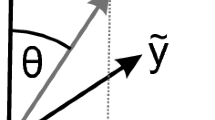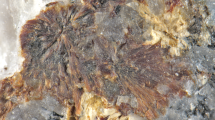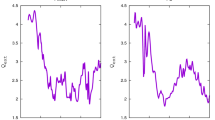Abstract
It is well known that the number of independent second-order elastic coefficients required to describe the behaviour of cubic crystals is three, irrespective of the class to which they belong, whereas the corresponding number for isotropic bodies is two. That a crystal of the cubic system differs from an isotropic body in another important respect, namely, its photo-elastic behaviour, was discovered by Pockels. Pockels, however, as in the case of elasticity, made no distinction between the five classes of crystals coming under the cubic system, but assigned three coefficients only for all of them. Contrary to this, one of us1 showed, by a different method based on group theory, that the T and Th classes of the cubic system require four coefficients for the description of their photo-elastic behaviour, whereas the other three classes Td, O and Oh require only three. This prediction has been verified by us experimentally by working with crystals of potassium alum2.
This is a preview of subscription content, access via your institution
Access options
Subscribe to this journal
Receive 51 print issues and online access
$199.00 per year
only $3.90 per issue
Buy this article
- Purchase on Springer Link
- Instant access to full article PDF
Prices may be subject to local taxes which are calculated during checkout
Similar content being viewed by others
References
Bhagavantam, S., Proc. Ind. Acad. Sci., 16, 359 (1942).
Bhagavantam, S., and Suryanarayana, D., Proc. Ind. Acad. Sci., in the press.
Birch, F., Phys. Rev., 71, 809 (1947).
Suryanarayana, D., Proc. Ind. Acad. Sci., 22, 148 (1945) and 23, 257 (1946).
Author information
Authors and Affiliations
Rights and permissions
About this article
Cite this article
BHAGAVANTAM, S., SURYANARAYANA, D. Third-Order Elastic Coefficients of Crystals. Nature 160, 750–751 (1947). https://doi.org/10.1038/160750b0
Issue Date:
DOI: https://doi.org/10.1038/160750b0
Comments
By submitting a comment you agree to abide by our Terms and Community Guidelines. If you find something abusive or that does not comply with our terms or guidelines please flag it as inappropriate.



